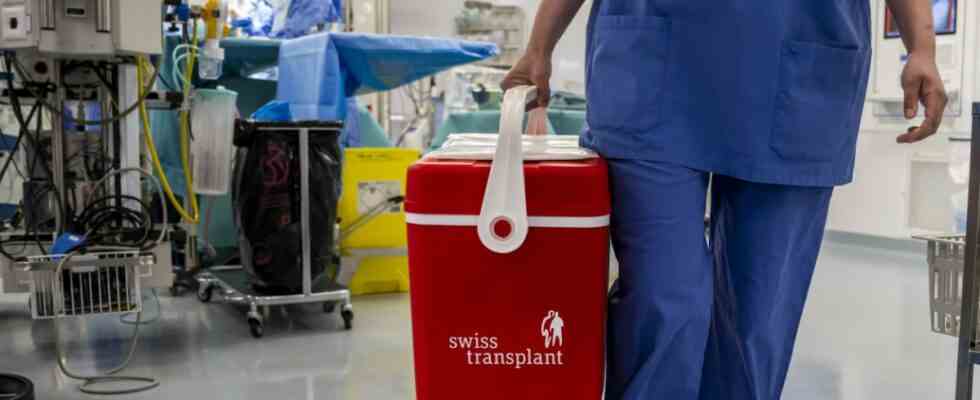When it comes to organ donation, Spain is worldwide lonely top. There were almost 50 donations per million inhabitants there in 2019. In Switzerland there were only 18 in the same year (and in Germany just eleven). Giving one’s organs to others who are seriously ill after death is almost the norm in Spain. What is the country doing differently?
The first thing you notice is that in Spain the opt-out solution applies, i.e. the principle that all people are basically organ donors as long as they have not objected to this during their lifetime. In Switzerland and also in Germany, on the other hand, the consent solution applies: You must have explicitly consented to an organ donation during your lifetime, by means of a corresponding ID card or an entry in a register. The two countries are among the last in Europe to have this model.
In recent years, Germany has been intensively discussing a change to the opt-out solution in order to increase the number of donor organs. Ultimately, however, the consent solution was retained, supplemented by the new rule that people are regularly asked about their willingness to donate organs. Switzerland is now caught up in the same debate: the government and parliament have amended the transplantation law so that an extended opt-out solution is to apply in the future – meaning that anyone who has not opted out during their lifetime is considered a donor. However, the relatives have a right of veto if the will of the deceased is not documented.
Critics collected signatures against the reform and pushed through a referendum. On May 15, Switzerland will vote on it – and the Confederates have therefore been wondering for weeks who to believe: the supporters, who are convinced that the contradiction solution will drive up the donation rate, or the opponents, who question exactly that and consider the new regulation to be too severe an encroachment on the right to self-determination and physical integrity.
At first glance, the donor rates in Europe paint a relatively clear picture: Leaders such as Spain, Portugal, France and Belgium practice the opt-out solution, while those at the bottom of the ranks are mainly countries with the opt-in solution, including Germany and Switzerland as well as Ireland and Denmark. However: Luxembourg, for example, only had eight donations per million inhabitants in 2019 despite the opt-out solution, and in Iceland (which has now also switched to the opt-out solution) there were about the same number of donations per million inhabitants with the consent model as in Austria, where the opt-out solution has been around since applies to the eighties.
There are indications that a contradiction model could positively influence the donation rate
The Federal Council, the seven-strong Swiss government, also knows that things are not so clear cut. A study published in 2018 from the University of Zurich on behalf of the Federal Office of Public Health came to the conclusion that there is no clear evidence for a direct causal connection between the opt-out solution and the donor rate – even if the indications that an opt-out model could have a positive influence on the donor rate had “condensed”. The study is one of the central arguments of the opponents of the reform.
In the voting papers The Federal Council accordingly concedes that, in addition to the manner in which the will is expressed, other factors could also increase the number of organ donations, “such as the resources in the hospitals and the training of the specialist staff”. Proponents emphasize that the contradiction solution is “one piece of the jigsaw among many” in order to increase the donation rate like the FDP politician Regine Sauter: It does not alone lead to success, but can make a decisive contribution to it.
The fact is that Switzerland has seen an increase in organ donations for several years, including with the consent model. The “More organs for transplants” action plan launched by the government in 2013, which ran until 2021 and under which the structures of Swiss hospitals were better geared to donations, may have played an important role in this. Since then, the topic of organ donation has been part of the training of medical staff, and every hospital can have a local coordinator financed by the health insurance companies. The increased Swiss donor rate suggests that these measures were certainly not wrong.
The fact that the government and an overwhelming majority in the Swiss Parliament also want an opt-out solution is mainly due to the surveys that have been carried out on the subject of organ donation: According to this, a majority of Swiss people – between 53 and 74 percent – willing to donate their own organs. Only 16 percent have a donor card. The Federal Council and Parliament therefore see a lot of unused potential for donations and want to “improve the chances of those people who are waiting for an organ” with the objection solution. That was 1434 people in Switzerland at the end of 2021. 72 people on the waiting list died that year.
A majority of Swiss now apparently assumes that the opt-out solution could actually reduce this number: according to polls more than 60 percent could vote for the reform on May 15.

